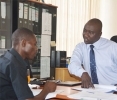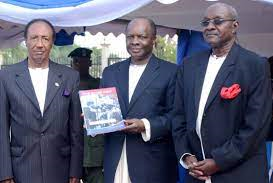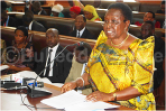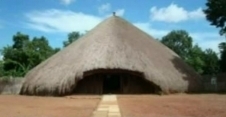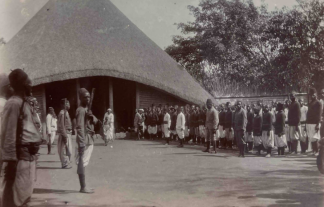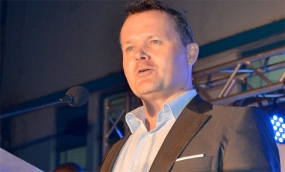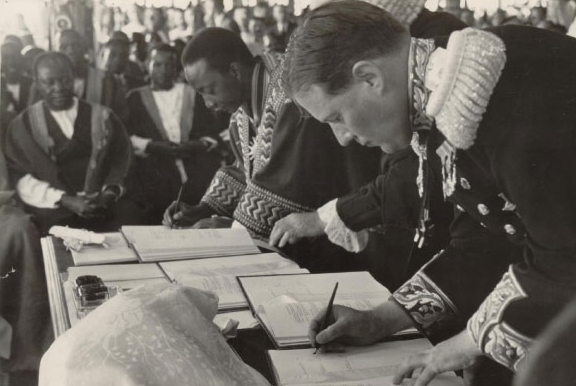About this Court:
The International Court of Justice (ICJ) is the principal judicial organ of the United Nations (UN). It was established in June 1945 by the Charter of the United Nations and began work in April 1946.
The seat of the Court is at the Peace Palace in The Hague (Netherlands). Of the six principal organs of the United Nations, it is the only one not located in New York (United States of America).
The Court’s role is to settle, in accordance with international law, legal disputes submitted to it by States and to give advisory opinions on legal questions referred to it by authorized United Nations organs and specialized agencies.
The Court is composed of 15 judges, who are elected for terms of office of nine years by the United Nations General Assembly and the Security Council. It is assisted by a Registry, its administrative organ.
Its official languages are English and French.
THE INTERNATIONAL LEGAL DISPUTE:
I watched the President of Uganda, Mr Museveni on TV addressing journalists in Rwakitura recently. During the conference, he rejected the international legal fact that Buganda got its independence on October 8, 1962. I wish to invite the President to a public debate on this matter.
His Royal Highness Prince Edward, the Duke of Kent, signed and handed over a legal instrument of independence for Buganda Kingdom so as to terminate all the agreements that Great Britain had entered into with the kingdom. These are the 1893 Agreement,the1894 Agreement, and the1900 Agreement as amended in a general notice No 1/75 of 1908.
Remember at on the insistence of Governor Sir Phillip Euen Mitchell, the said amendment was consolidated in volume VI of the laws of the Uganda Protectorate in 1935 on page 1373. Then there was the1955 Agreement and finally the 1961 Agreement. So inside the new Bulange Hall at Mengo October 8, 1962, the Duke of Kent handed over a signed legal instrument of independence that effectively terminated the old order and that is what makes it an independence day for Buganda.
The occasion in Bulange was witnessed by Governor Sir Walter Coutts, Prime Minister Milton Obote, visiting President Jomo Kenyatta and his colleague Mr Tom Mboya as well as all Buganda Kingdom leaders.
by Amos Ntambi,
THIS IS BETWEEN THE ANCIENT STATE OF BUGANDA AND THE NEW STATE OF
BRITISH-UGANDA.
THE PETITIONERS: The Grand Children of the country of Buganda.
THE RESPONDENT: England (Great Britain).
The Cry Out:
Abakulembeze mukkirize enkyukakyuka n'okuwabulwa - Kabaka wa Buganda yegayiridde abakulembera ensi Uganda:
May 31, 2015
Bya DICKSON KULUMBA
KABAKA Ronald Muwenda Mutebi II atongoza olunaku lwa gavumenti ez’ebitundu mu Buganda nalaga ebintu omukulembeze omulungi byalina okubeerako nabyo bw'abeera wakutumbula enkulakulana y’ekitundu kye.
Mutebi II yagambye nti “ Omukulembeze yenna kabeere mulonde, ow’akalulu, wa nsikirano, eddiini oba engeri yonna, omulimu omukulu gw'alina kwekukolera abantu be ebyo ebitumbula enkulakulana. Obukulembeze obuggumivu era obukkirizibwa mu bantu bulina okukkiriza enkyukakyuka era bulina okukkiriza okuwabulwa. Obukulembeze obutatambulira ku bino bwetaaga okuvumirira kubanga tebulimu na mukono gwa Katonda.”
Kabaka yalaze obukulu bw’obukulembeze okuviira ddala ku byalo okutuuka ku masaza okunywezebwa n'alagira minisitule ekola omulimu guno mu Bwakabaka okuteekawo emisomo okwongera okusomesa abantu ku nkola za gavumenti ez’ebitundu bwezitambuzibwa.
Bino Kabaka yabyogeredde ku mukolo kweyatongolezza olunaku lwa gavumenti ez’ebitundu mu Buganda ku mbuga y’essaza ly’e Kyaggwe e Ggulu- Mukono ku Lwomukaaga May 30,2015 era olunaku luno lwakubeerangawo buli May 30.
Gavumenti ez’ebitundu mu Buganda muzingiramu ebyalo, emiruka, amagombolola n’amasaza nga bino bitwalibwa minisitule ya gavumenti ez’ebitundu e Mmengo.
“ Tusaba abateekateeka okulonda kwa 2016 okuwuliriza ebirowoozo by’abantu eb’enjawulo ku nkyukakyuka ze beetaaga ng’ekimu ku bijja okuleetawo okukkaanya.”
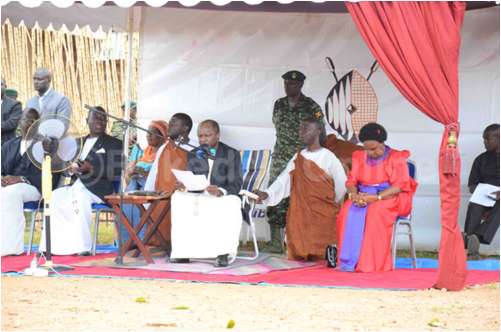
Kabaka Mutebi II ng'ayogerera ku mbuga y'essaza e Mukono (31/05/2015)
n'asaba abakulembeze okwagala okukkiriza enkyukakyuka ate
n'okuwabulwa okuva mu bantu be bakulembera.
Ekifaananyi kya Dickson Kulumba
Omukolo gwetabiddwako omumyuka ow’okubiri owa Katikkiro, Hajj Mohamood Ssekimpi, Namasole Margaret Nagawa Siwoza, baminisita n’abakulembeze abalala okuva mu masaza ga Buganda yonna omuli n'aba gavumenti eya wakati.
Introduction to Various African Kingdoms
Ancient Ghana 
Founded as a kingdom around AD 300, the empire of Ghana reached its height in the 10th and 11th centuries. Becoming a superstate, it also controlled territories that are now the modern nations of Senegal, Gambia, Mauritania, Guinea and Mali. The empire was located between two rivers, the Senegal and the Niger, and its capital was Kumbi-Saleh, in what is now south-eastern Mauritania. Other important cities included Nema, Audoghast and Walata. Located at the centre of trade, donkey and camel caravans brought gold and salt, and barges and porters also carried merchandise. Ibn Haukal, an Arab geographer writing in AD 951, tells of a cheque for 42,000 gold dinars written to a merchant in Audoghast by his business partner in Morocco. He also informs us that the ruler of Ghana was the richest monarch on the face of the Earth, whose pre-eminence was due to the quantity of gold nuggets amassed during his reign and by his predecessors. Medieval Mali Beginning as a tributary state within the empire of Ghana around AD 800, Mali became independent in the 12th century and later seized territories previously owned by Ghana until, in the 14th century, it ruled what are today the nations of Senegal, Gambia, Mauritania, Guinea and, of course, Mali. It was then the second largest empire in the world, comparable in size to all of western Europe. According to architectural scholar Sergio Domian, it had at least 400 cities and large towns. A BBC documentary, based on the research of British historian Felipe Fernández-Armesto, described the empire of Mali as the richest on Earth at that time. Timbuktu, one of its major cities, had three famous temples whose minarets dominated the skyline: the Great Mosque, Sankoré University and the Oratory of Sidi Yahia. A 12th-century geography text describes Gao, another important city, as 'a populous, unwalled, commercial and industrial town in which were to be found the produce of all arts and trades.' Archaeologists from Cambridge University recovered interesting 10th- to 14th-century artefacts from this city including: 'Fragments of alabaster window surrounds and a piece of pink window glass'. Early Ethiopia Ethiopia and its cities of Yeha, Axum, Lalibela, Harar and Gondar have thousands of years of history, rich in monuments, fine art, coins, manuscripts and inscriptions and of great importance in the early history of Judaism, Christianity and Islam. In the 3rd century AD, it was reckoned to be the third most powerful state in the world, after Persia and Rome. Some scholars identify its written script, Ge'ez or Ethiopic, as the parent of the Armenian and Georgian scripts of eastern Europe. The temple of Almaqah in Yeha, with its inscriptions written in proto-Ethiopic, was built in the 6th century BC. Axum contains seven giant stelae carved between 300 BC and AD 300. One of these, the fallen monolith, is the largest ever made anywhere in the world, weighing a staggering 520 tonnes. Lalibela contains 11 medieval churches carved out of the mountain rock by hammer and chisel to a depth of 11 metres below ground level! Sixteenth-century Harar is the fourth holiest site in Islam and a centre of Islamic scholarship. Finally, Gondar contains 17th-century castles, which have earned it the moniker of the 'Camelot of Africa'. |
A British-backed Mau Mau memorial has opened up in Nairobi, Kenya:
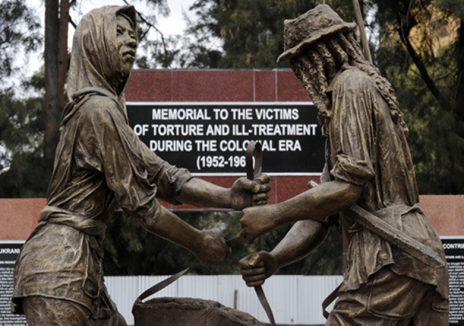
A picture taken on September 7, 2015 shows the memorial
It is in honour of victims of torture during the colonial era in Nairobi ahead of an unveiling ceremony on September 12. A British-funded memorial to victims of Kenyas bloody Mau Mau rebellion will open in Nairobi in a rare example of former rulers commemorating a colonial uprising. AFP PHOTO / TONY KARUMBA
A British-funded memorial to the thousands killed, tortured and jailed in the Mau Mau rebellion was unveiled in Kenya on Saturday, in a rare example of former rulers commemorating a colonial uprising.
At least 10,000 people died in one of the British Empire's bloodiest insurgencies -- some historians say over double that -- and the security operation to tackle the 1952-1960 struggle was marked by horrific abuses.
The guerrillas, mainly from the Kikuyu people, terrorised colonial communities with attacks from bases in remote forests, challenging white settlers for valuable land. But while attention at the time focused on 32 murdered settlers, the number of Kenyans killed was far higher.
Britain's High Commissioner to Kenya, Christian Turner, said he was "humbled" to be at the ceremony.
"I hope that this memorial will allow us to acknowledge and discuss together the issues arising from a difficult period in the history of both Britain and Kenya, and that it offers us the opportunity to draw a line and move forward," Turner said.
"This is the right thing to do for those of you who suffered, for Britain and Kenya, and our joint relationship," he said. "To deal with the present and move forward into the future, we have to recognise and learn from the past."
British and Kenyan flags fluttered over Nairobi's Uhuru, or 'Freedom', park, with a crowd of several thousand Mau Mau veterans surrounding the memorial, many still with their trademark but greying dreadlocks.
Many of the Mau Mau veterans, well over 70 years old, were wearing T-shirts adorned with the slogan "heroes". Turner was given a huge cheer, and many of the former fighters pressed forward to shake his hand.
Thousands suffered horrific torture including sexual mutilation, and tens of thousands more were detained in shockingly harsh detention camps.
Turner himself described how his step-grandfather had been Kenyan police chief during the colonial period, resigning in 1954 over "colonial administration's failure to address brutality committed by the security forces."
- Britain's 'first apology' for abuses -
The memorial features a statue of a dreadlocked Mau Mau fighter armed with a homemade rifle being handed food by a woman supporter. Although a joint project between Britain, the Mau Mau Veterans Association and the Kenya Human Rights Commission, the £90,000 (138,00 dollar, 124,00 euro) bill was paid by London.
"This memorial is a symbol of reconciliation between the British government, the Mau Mau, and all those who suffered," reads the stone plaque on the memorial.
The commemorative statue follows a June 2013 decision by Britain to compensate more than 5,200 elderly Kenyans tortured and abused during the insurgency. The £19.9 million (27 million-euro, $31 million) deal -- separate from the cost of the memorial -- followed a four-year legal battle.
Professor David Anderson, author of one of the first books to fully document the extreme abuses, 'Histories of the Hanged', said the memorial was "long overdue".
"This gesture will do far more good than any money you give out," said Anderson, professor of history at Britain's University of Warwick.
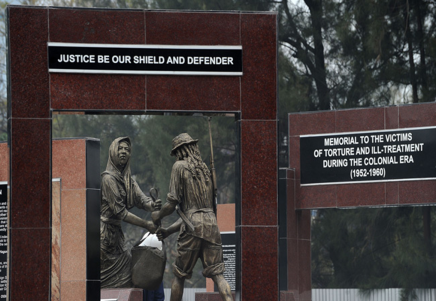
The words written there of speak for themselves on the
African continent
"It is the first memorial of this kind to come out of this kind of adversarial process," he said.
Lawyer Daniel Leader, from the London-based Leigh Day firm that represented the veterans in court, said the memorial was "historic" and represented "the first apology by the UK government for abuses".
While the Mau Mau were ultimately defeated, their struggle was seen as a key step towards Kenya's independence in 1964. But the struggle also created bitter divisions within communities.
Some of the worst atrocities were carried out between Kenyans loyal to colonial forces and the Mau Mau.
Professor David Anderson, author of one of the first books to fully document the extreme abuses, 'Histories of the Hanged', said the memorial was "long overdue".
"This gesture will do far more good than any money you give out," said Anderson, professor of history at Britain's University of Warwick.
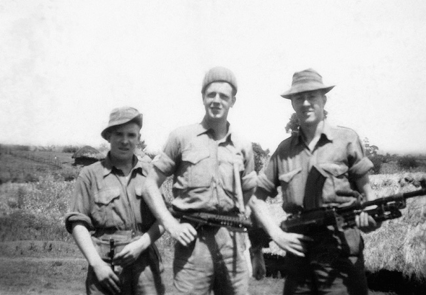
An image made available by the Seamus McGowan family
on September 11, 2015
This old photo shows British army soldiers with the Royal Irish Fusiliers, a regiment that included troops from both Northern Ireland and the Republic of Ireland, is pictured in an area close to Nyeri, Kenya, circa 1952-1953, during the so-called “Kenya Emergency”, or Mau Mau Uprising against British colonial rule and the presence of white settlers.
"It is the first memorial of this kind to come out of this kind of adversarial process," he said.
Lawyer Daniel Leader, from the London-based Leigh Day firm that represented the veterans in court, said the memorial was "historic" and represented "the first apology by the UK government for abuses".
While the Mau Mau were ultimately defeated, their struggle was seen as a key step towards Kenya's independence in 1964. But the struggle also created bitter divisions within communities.
Some of the worst atrocities were carried out between Kenyans loyal to colonial forces and the Mau Mau.
